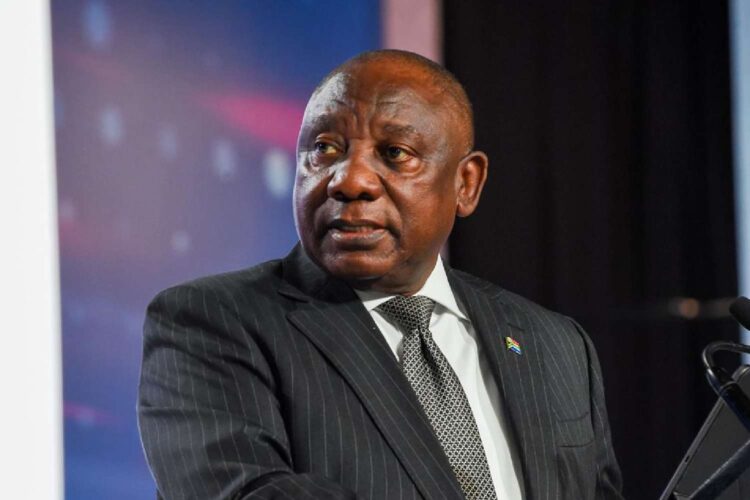President Cyril Ramaphosa says the government is working to build a public service staffed by men and women who are professional, skilled, selfless and honest.
He said that this was in order to build a capable developmental state for the implementation of the Economic Reconstruction and Recovery Plan (ERRP).
The President said that this includes the implementation of the Professionalisation of the Public Service Framework.
The Framework proposes fundamental reforms, including a stronger emphasis on merit-based recruitment and appointments, integrity testing before recruitment, revising the tenure of Heads of Departments, and curriculum development for ongoing learning of public servants.
President Ramaphosa was responding to questions by Members of Parliament on Thursday in Cape Town.
The government announced the Economic Reconstruction and Recovery Plan in October 2020, in response to the severe health, social and economic effects of the COVID-19 pandemic.
The plan was founded on engagements among social partners, including government, labour, business and community based organisations.
“For the plan to succeed, government identified several key enablers. These include regulatory changes, a supportive policy environment and enabling conditions for ease of doing business. They also include a capable state and effective social compacts.
“In this year’s State of the Nation Address, I spoke of the centrality of a capable and effective state in addressing the country’s key challenges of poverty, inequality, unemployment, load-shedding, crime and corruption,” the President said.
Responding to what plans Government has post the audit of the civil service to build a capable developmental state for the implementation of the ERRP, he reiterated that the National School of Government will work with other organs of state to conduct skills audits in infrastructure and frontline service departments.
“The skills audits will help to accelerate the professionalisation of our civil service. It will help us determine whether critical skills do exist to effectively deliver economic infrastructure and essential social services.
“To enable departments to deliver services more effectively and efficiently and to establish a single public administration, amendments have been drafted to the Public Service Act and the Public Administration Management Act,” he said.
The President highlighted that the key infrastructure and frontline service departments that will participate in the first phase of the skills audit are Transport, Human Settlements, Water and Sanitation, Cooperative Governance, Public Works and Infrastructure, Home Affairs, Social Development, and Employment and Labour.
The Department of Public Service and Administration (DPSA) is leading the Building State Capacity Programme. This is intended to develop appropriate interventions and initiatives to enable the state to deliver efficiently, effectively and responsively.
This includes collaboration and partnerships with other departments and entities, Chapter 9 institutions, oversight bodies, academia, research organisations, civil society and the private sector.
In February 2022, the DPSA entered into an MOU with the Auditor-General of South Africa to audit compliance in areas such as filling of vacancies, performance management and institutional development.
“There are multiple plans and interventions to ensure the successful implementation of the Economic Reconstruction and Recovery Plan.
“While we face significant challenges, they are not insurmountable. With our social partners, through best practice and by replicating what has shown to work, we will succeed in overcome these challenges,” the President said.






